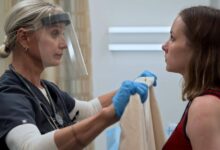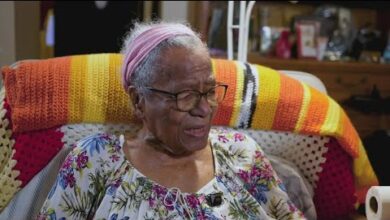Charity to expand global nursing partnership in Kenya

A new partnership is set to launch between hospitals in the South West of England and hospitals in Kenya, as part of a global network that supports nurses to deliver emergency care.
The partnership is being led by Dharura: Global Emergency Care, a charity based at the Bristol Royal Infirmary, which is run by University Hospitals Bristol and Weston NHS Foundation Trust.
“We have been able to create an enormous amount of projects that are going to have a meaningful impact on a large amount of people”
Sara Daglio
Founded in 2019 by physicians at the hospital, it has been trying to address global inequity in emergency care by providing nurses and other healthcare professionals with opportunities to work internationally.
So far, Dharura has sent several nurses and doctors to Nanyuki Hospital in the Laikipia County of Kenya, to shadow and support emergency care staff there for a few months.
The goal of the global health partnership is to strengthen health systems and services through exchanging of knowledge and expertise.
Sara Daglio, a senior emergency department nurse at Bristol Royal Infirmary, was the first ever Dharura global nursing fellow to pilot the scheme.
Since then, she has been appointed as nursing lead for the charity and has been helping nurses to undertake the programme and support their colleagues in Kenya.
Ms Daglio told Nursing Times that it was “an honour” to be part of the pilot and that her time in Kenya had improved her skillset as an emergency department nurse.
She said: “I didn’t have much exposure to educating colleagues or facing the harsh reality of an organisation that is not necessarily having all the resources to maintain a good quality of care.
“Coming back from that experience really gave me the opportunity to reflect on a better use of resources, or a more intelligent use of the resources.
“So I came back home with a lot of these thoughts that I’ve tried replicating in my work,” she said.
Ms Daglio noted that trusts in the surrounding areas had expressed interest in replicating the volunteering programme, which has informed how Dharura will move the project forwards.
She said the charity had a vision to create a “national network” of hospitals in England, which will each support different hospitals across Kenya.
Dharura is aiming to replicate its model with the Nanyuki emergency department across England by collaborating with other hospital trusts.
So far, trusts that run the Royal Cornwall Hospital in Truro, Derriford Hospital in Plymouth and Torbay Hospital in Torquay have expressed interest in the project.
Meanwhile, Dharura was this year awarded a £300,000 grant by the Tropical Health and Education Trust (THET), which it is also using to expand its outreach across Kenya.
Ms Daglio said: “Thanks to this large grant, we have been able to create an enormous amount of projects that are going to have a meaningful impact on a large amount of people.”
She highlighted that people in Kenya needed “urgent care more than anything else”.
“We know that emergency care is going to have a large impact on patient health in low- and middle-income counties, because that’s where the majority of the health needs reside,” said Ms Daglio.
Dharura has already partnered with the Emergency Medicine Kenya Foundation (EMKF), to support its vision to develop the emergency care workforce in Kenya.
As part of the collaboration, Dharura is currently supporting clinicians in Kenya to go on a training course for emergency care, which includes education on triage and basic life support.
Separately, the charity is also running a 12-month programme of monthly training to five rural clinics within the Northern Rangelands Trust in Kenya.
Ms Daglio explained that, often, country rangers were “the only people that could deliver any sort of primary care” in rural areas.
“We are training rangers in this area and delivering some community training, because we have seen that training people to respond to emergencies, actually [has] a very good impact on the local communities.”







